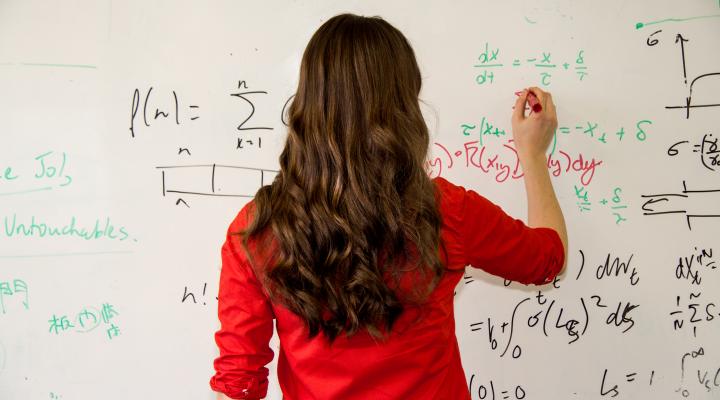Mathematics and physics are extremely fascinating subjects as they deal with the facts, figures, and science behind the way our daily life functions. Physics and math, however, are subjects that are generally known to be challenging as they have concepts and details that are in-depth and complex. Introductory physics is rather difficult for students to grasp because they feel that concepts are unrelatable and abstract. The subject has various forms to it, which includes experiments, formulas, calculations, graphs and complicated theories. Physics as a discipline requires students to try their hands at different methods to translate what they have learnt in theory to apply and comprehend how everything works in real-life.

Mathematics, on the other hand, is very similar to physics in terms of its complex nature but the challenges are a little different. In mathematics, the examination questions are often set to be extremely complex by interlinking several concepts, bringing in real-life examples to apply in terms of practical context and it requires students to think out of the box. Students often miss out on asking the important questions of ‘why’s and ‘how’s, and hence they take everything at a superficial level inevitably. The interplay between mathematics and physics is much more complicated than that. They weren’t even separate disciplines for most of the recorded history but even after physics and mathematics began their separate evolutionary paths, the disciplines were closely related and till date has travelled together parallelly. with the availability of Maths and Physics tuition, a student can enhance their skills and perform well in exams.
So, what are the things that students can follow to master their skills in math and physics?
#1: SHORT STUDY SESSIONS

Source: pa-mar.net
Scientific research shows that studying will be most effective in numerous sessions with short duration. Instead of forcing yourself to sit for several hours in a row to cram in information into your head, breaking the hours down into 30-minute sessions with breaks in between will be very effective. Short repeated sessions enable you to internalise information effectively (especially since math and physics concepts are not all that easy) and you will be able to summarise for yourself as to what you have covered for the day.
#2: BREAK IT DOWN AND ANALYSE DETAILS

It is important for you to make the effort to simplify huge questions with many details into smaller pieces of important information for easy understanding and this is, in a way, building a strong foundation and eliminating the fear that students have for this subject.tor
So, there isn’t a need to be worried about anything, because when learning abstract concepts, as long as you care to take a look at the bigger picture and view the crucial details by taking a microscopic view, there is no way physics and math could seem challenging and intimidating. Take baby steps into approaching a question and by practicing that with other questions, it will become a habit and you will master the skills of answering complex questions eventually.
#3: PHYSICS AND MATH TUITION
A Physics and Maths Tutor is always willing to steer you in the right direction and guide you along the way. They will not give you the answers but they will equip you with the mental tools and skillsets for you to figure out and solve the problems by yourself. They are the biggest pillars of strengths in your educational journey and the best among the lot will always be able to skilfully interlink concepts with real-life application and explain its relevance in your lives.
Being able to relate concepts and think above and beyond textbooks will guarantee an A grade and that is the trick to excellence! The utmost important thing to remember is to never lose hope and always work hard with persistence and tenacity.
